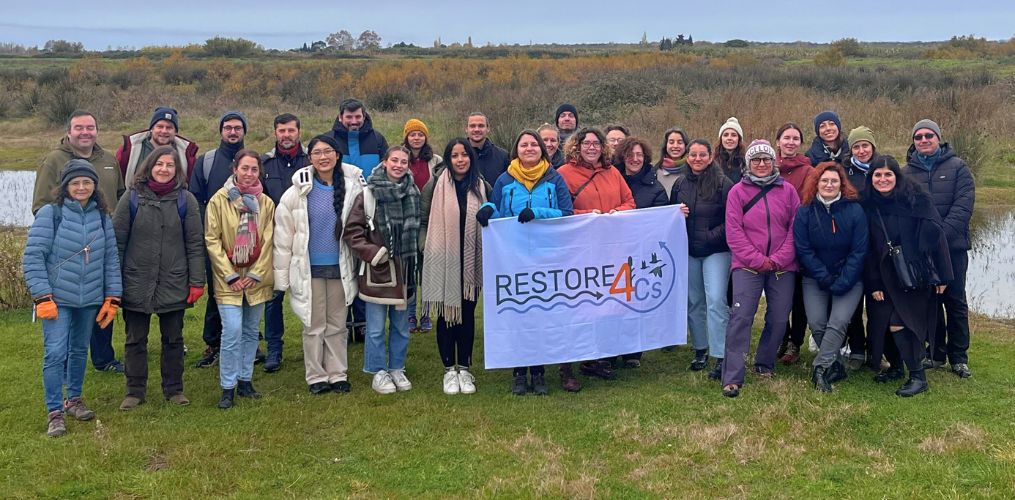
The 5th RESTORE4Cs General Assembly, held from 19-21 November 2024 in the stunning Camargue region of France, brought together project partners and stakeholders to review progress and shape the future of wetland restoration and conservation across Europe. LifeWatch ERIC played a key role in the event, sharing significant developments in communication, digital tools, and policy outreach.
At the assembly, LifeWatch ERIC’s Madeira Scauri, leader of Work Package 8 (Communication, dissemination, and exploitation), provided an update on the second phase of the project’s communication strategy. She revealed the upcoming Camargue Case Pilot teaser and announced the launch of the highly anticipated RESTORE4Cs Serious Game in December 2024. The Serious Game aims to engage a broader audience in wetland restoration through interactive simulations.
The General Assembly was also a change for LifeWatch ERIC to introduce plans for a Summer School, designed for policymakers and the scientific community. This initiative will help bridge the gap between science and policy, furthering the project’s educational and outreach goals.
LifeWatch ERIC also played a crucial role in promoting cross-project collaboration. Madeira Scauri presented the Sister Projects’ joint factsheet, published on the occasion of their joint participation in SERE 2024, as well as a session on cooperation with the REWET project, led by Vanessa Ferreira, which highlighted synergies and operational steps to strengthen partnerships and maximise the project’s impact.
The assembly wrapped up with a successful series of field visits to key sites, including Marais du Cassaïre, Marais du Vigueirat, and the Pont de Gau Ornithological Park, allowing participants to gain local insights into the Camargue wetlands, where the project’s sampling and filming efforts for a documentary were underway.
Stay tuned for more updates on the RESTORE4Cs Serious Game, the Summer School, and other exciting developments as the project continues to progress.
Photo credits: LifeWatch ERIC – Madeira Scauri